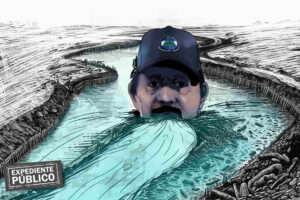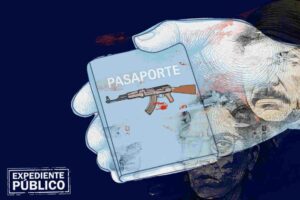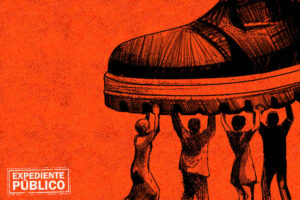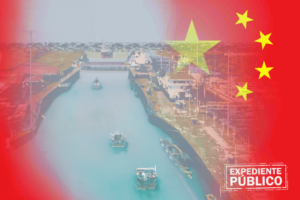*The first bad sign was the Amnesty Law, which favored those accused of corrupt acts, according to David Holiday, an American foreign policy analyst for Expediente Público.
*Political polarization, lack of transparency in the election of magistrates and the attorney general, and obstacles to investigations on corruption are the elements standing in the way of the establishment of a CICIH in Honduras.
Expediente Público
The lack of a clear commitment on behalf of the government of Honduras to make advances in the fight against corruption worries the United States, which is currently giving the country the benefit of the doubt,” said David Holiday, political analyst of the Open Society Policy Center, in an interview with Expediente Público.
In the interview, Holiday analyzed the process of establishing an International Commission against Impunity in Honduras (CICIH) under the leadership of the United Nations. Holiday also referenced the obstacles that such a commission faces and the reach it should have, following calls, which began in 2015, for the establishment of a CICIH in the Central American country.
The creation of an international commission to combat corruption and impunity was part of the discourse of now President Xiomara Castro during her inaugural address on January 27, 2022, which ended 12 years of National Party (right) rule, during which Juan Orlando Hernández, extradited by the US government on drug trafficking charges, held office for eight years.
“I have ordered the Ministry of Foreign Relations to send a communiqué to the United Nations soliciting its support and assistance in combating corruption,” said Castro, who rose to power representing the Libre Party (“Libertad y Refundación,” left) in coalition with the parties, Salvador de Honduras (“PSH,” center) and Innovación y Unidad Social-Demócrata (“Pinu-SD,” left-of-center).
But, for Holiday, “the government has only expressed its desire to establish a CICIH. In the coming months, the government’s actions will reveal if political will on the issue exists.”
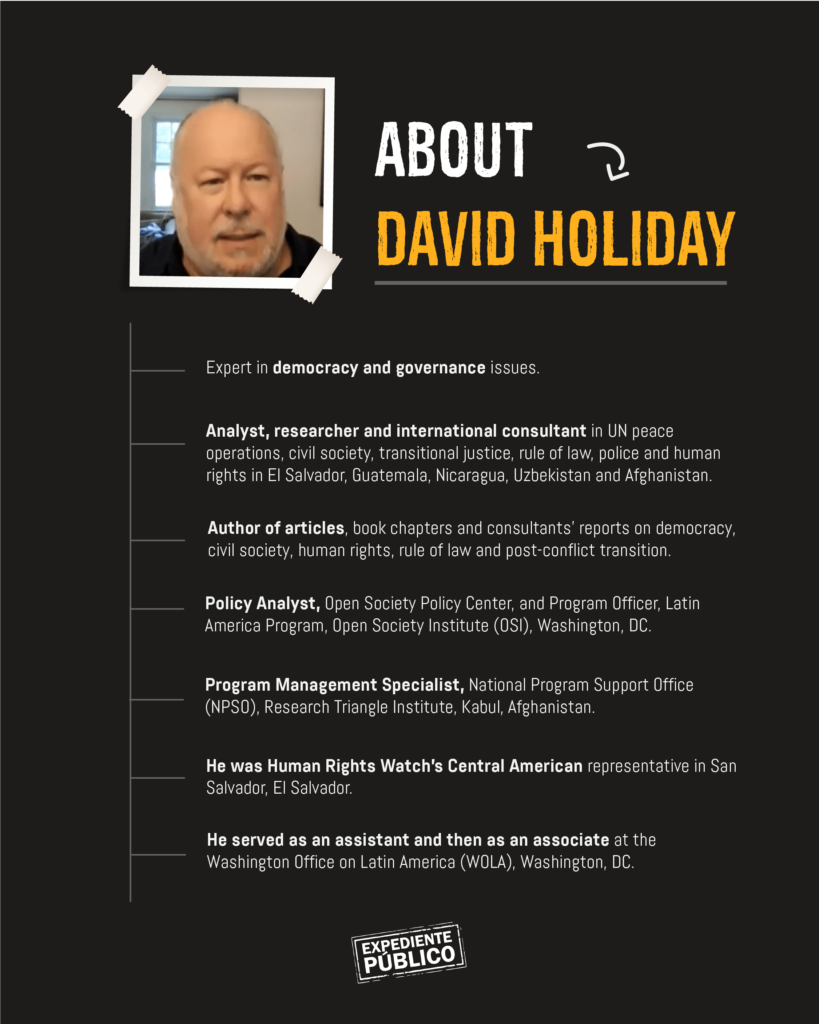
Combating corruption in Honduras
The February 2022 approval of the Amnesty Law, which was passed by the legislature to favor former government officials of the Manuel Zelaya administration (2006-2009) charged with acts of corruption, called into question the commitment of the Castro administration to combat corruption.
“While it is true that the law favored some people who should have benefited from an amnesty law, the fact the that the administration included beneficiaries who had ties to corruption was not a great look for the country and was one of the first alarm bells to sound,” said Holiday, an analyst with more than 20 years of experience working on democracy, transparency, and governance issues.
“While the United States is giving the administration the benefit of the doubt, I believe that the United States also worried, even if it does not say so publicly,” based on a lack of “clear signals on advances in the fight against corruption,” according to the analyst.
Read: “Mel” Zelaya utiliza su poder para ayudar a un correligionario a evadir la justicia
In this sense, Holiday considers that a transparent and open election for Supreme Court magistrates and attorney general is important, since the best lawyers “will not apply” if they believe that the election process is part of a political game.
UN conditions for a CICIH in Honduras
According to Holiday, the assurance of such an election could be one of the next steps for the United Nations technical mission that visited Honduras in mid-May of this year.
“I believe that the United Nations is fully willing to support an international commission.” However, Holiday considers that the United Nations will move slowly, in terms of its support, to confirm that there will be free and transparent elections for the Supreme Court and attorney general in January and August of 2023, respectively.
The International Commission against Impunity in Guatemala (CICIG), which the United Nations led over a period of 12 years, “was only able to function when led by a capable and willing prosecutor and independent judicial power,” he stated.

Read: Estos serán los obstáculos que tendrá el trabajo de la CICIH en Honduras
For David Holiday, changes to the legal framework would be another condition for the United Nations, because “there are still barriers to criminal investigations, which Luis Javier Santos and civil society organizations have voiced.”
Santos is the head prosecutor of the Special Unit to Combat Networks of Corruption (UFERCO), which is a continuation of the Special Prosecution Unit against Impunity and Corruption (UFECIC), created to investigate cases of corruption in conjunction with the Mission to Support against Corruption and Impunity in Honduras (MACCIH, 2016-2020).
Agreeing on a consensus
For Holiday, the United Nations also will want the CICIH to result from a consensus reached by way of congressional majority and as a product of the work of one specific party, such as Libre or PSH. Holiday believes that the United Nations will want to see an agreement approved by Congress on the matter.
However, Holiday recognizes that the political atmosphere in Honduras is very polarized, which could be an obstacle for the arrival of an UN-backed organism. He pointed to the importance of convincing the nationalists and liberals to support the commission. “There is some resistance to the commission since members see attitudes of some government officials as mirroring those conducive to witch-hunting,” which makes the situation difficult, as the liberals and nationalists were in power for 12 years, a period which is important to investigate.”
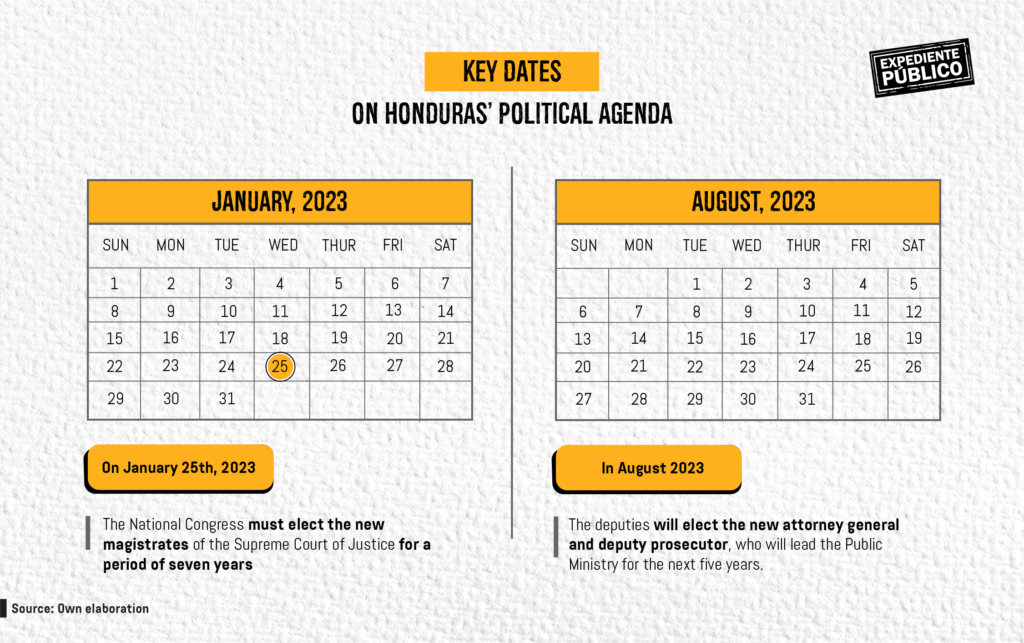
Holiday insisted that the “United States was not interested in becoming involved in a polarized situation that could impede the installation of the commission, in the case that the liberals and nationalists are not convinced of the current government’s intentions and believe that they will be attacked.” However, “if these parties could see the long-term effects of a CICIH, they would want the organism to monitor the current administration,” Holiday adds.
The United Nations “will not solely look at what happened during previous administrations, especially if the commission will last for many years,” Holiday said. “The opposition should understand that the commission will not be leveraged by the government against political opponents and past governments.”
The head of the Office of Transparency and Anti-Corruption of the Secretariate of State, Edmundo Orellano publicly stated that the work of the CICIH would not be restricted to the National Party’s three terms in office, which, “is an important point to distinguish. However, the current government also needs to want to be monitored by the United Nations,” he expressed.
In this regard, he agreed with the declaration published on June 13 by the Episcopal Conference of Honduras, which underlined the importance of reexamining the foundation upon which Honduras wishes to build.”
“If you are really going to reexamine the foundation of the State and build a new country, reaching a political consensus that includes all perspectives is necessary.”
A lack of transparency
For the analyst, “if some members of the opposition support a CICIH in Honduras,” the work of the United Nations “could be more successful.” However, Holiday recognizes that there are many obstacles, including reforms passed by the previous Congress that favor impunity, which must also change.
“It surprises me that Congress has not changed some of these laws,” such as the Penal Code, said Holiday, knowing that the United Nations will want to see those changes before signing an agreement to establish a CICIH.
“I see commitment from the Salvador de Honduras Party, based on public statements” and “some Libre Party members, but not all of them,” continues the analyst who, for almost 15 years, has visited the Northern Triangle to assist and collaborate with civil society organizations and independent media outlets.
He also pointed to a general issue of transparency, using the congressional website as an example, as it appears to be “under maintenance since Congress has been in session.”
The foreign policy analyst pointed out that “there are basic standards of transparency with which the government must comply.”
Although Holiday said that he understood the funding problems related to the establishment of the commission and that the previous government left a “mess” behind, he insisted that some “transparency standards should not be difficult for the government to achieve.”
Read: El Gobierno de Hernández quiso mantener a oficiales señalados por sus vínculos con “narcos”.
When will there be a CICIH in Honduras?
According to David Holiday, “the best-case scenario” is that an anti-corruption commission could arrive in Honduras by mid-2023. However, its arrival will depend on the hiring process, the Supreme Court election, and the design of the agreement, which will be an important point to discuss. “It is possible that, in the creation of the agreement, there will be differences of opinion and legislators will not be able to reach an agreement, or one that would eventually be endorsed by all sectors of society.»

The next step in the process would be for the United Nations to send another technical team to Honduras to conduct a “careful” review of the legal situation in the country and begin arming an agreement to establish the CICIH, the final obstacle to the creation of such a commission, as “the devil often lies in the details,” he said.


